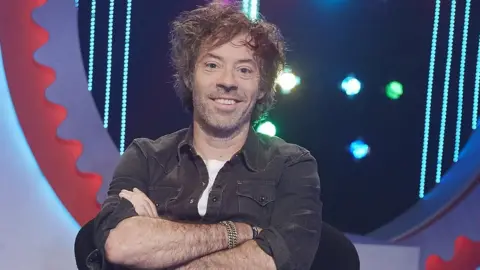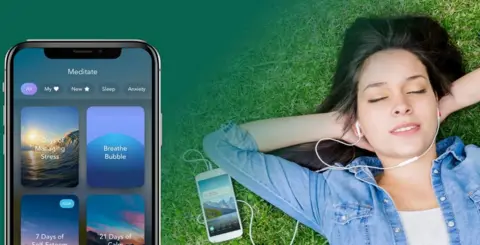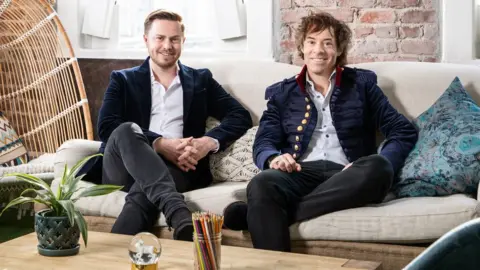Michael Acton Smith: From Moshi to Mindfulness
 BBC
BBCHe was one of the UK's brightest tech stars, the man behind the hugely popular children's game Moshi Monsters. Then, as his business's fortunes waned, Michael Acton Smith headed to California to start something new.
Now his meditation and mindfulness app Calm has achieved something he never reached with his previous businesses - unicorn status. In other words, a new funding round which has raised $88m (£68m) from investors, values the company at $1bn.
"Twenty-one months ago there were nine of us in a one-bed apartment - now we're the world's first first mental health unicorn," Mr Acton Smith tells me in a phone call from San Francisco.
Calm, which was named iPhone app of the year by Apple in 2017, started with a focus on meditation but has broadened its scope to other wellbeing issues such as curing insomnia.
 Calm
CalmThe most popular feature is what Mr Acton Smith describes as "bedtime stories for grown-ups", read by people like Stephen Fry and Matthew McConaughey.
The app - which has been downloaded about 40 million times - is free, but a million of its users pay around $70 a year to get premium content. Revenue is on course to hit $150m this year and the business is profitable.
Mr Acton Smith's last company Mind Candy looked set for great things, as its Moshi Monsters game became hugely popular with young children. But it failed to adapt to the move to mobile gaming.
"It grew very fast and came down very fast after kids moved on," he says, going on to explain that Calm will be different.
"This isn't the fickle world of entertainment. Calm is going to be around tomorrow, in a year, in a decade - stress isn't going away."
Both he and his co-founder Alex Tew - another Brit in Silicon Valley - say their personal experiences of stress and insomnia informed their decision to start Calm.
 Calm
Calm"Moshi was an incredible ride, " says Mr Acton Smith.
"I thought we were going to build the next Disney and then it shifted. During that period, it was very stressful and challenging.
"I had a lot of sleepless nights, a lot of headaches, and it was during that period that I was able to step back and understand what meditation actually was."
Mr Tew says he has experienced all the issues that Calm tries to help people with - "anxiety, depression, insomnia, the whole gambit".
But when I inquire about the business's relationship with mental health professionals, he is quick to stress that "we're not in the business of helping people deal with clinical mental health problems".
Calm is surfing the wave of interest in techniques to help us deal with a stressful world. It could be a fad, and there will be questions about how effective meditation or bedtime stories are in dealing with issues such as insomnia.
 Getty Images
Getty ImagesBut Mr Acton Smith says everyone - from children facing exams to stressed executives and elderly people in nursing homes - is using his app.
He failed to turn Mind Candy into the next Disney, but this irrepressible entrepreneur seems confident he can now build Calm into "the Nike for the mind".
Let's hope he doesn't have too many sleepless nights along the way.
